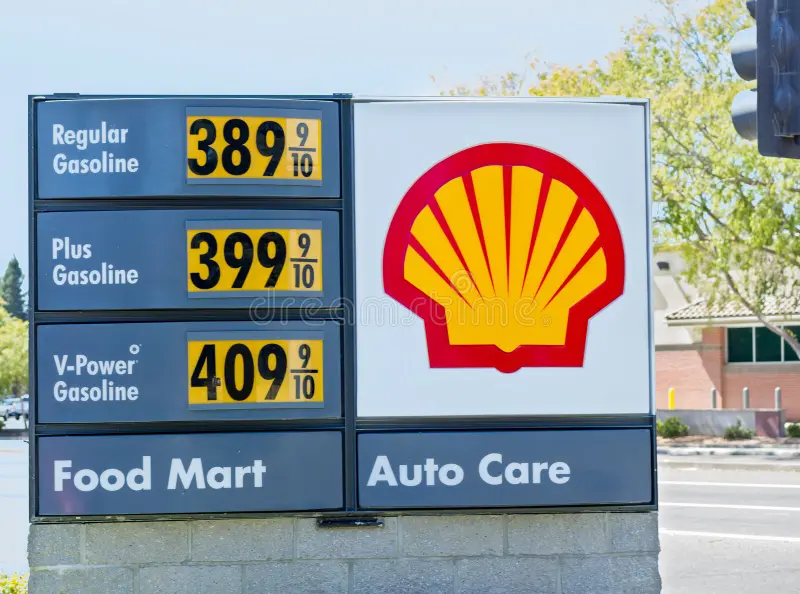
Introduction:
Shell, one of the world’s leading oil and gas companies, plays a significant role in shaping the global energy landscape. Among its many operations, Shell’s gas prices draw considerable attention due to their impact on consumers, businesses, and the economy at large. Understanding the factors influencing Shell gas prices is crucial for stakeholders ranging from motorists to policymakers. In this article, we delve into the complexities of Shell gas pricing, exploring the various elements that contribute to its fluctuations.
Global Oil Market Dynamics:The primary determinant of Shell gas prices is the global oil market. Crude oil serves as the fundamental raw material for producing gasoline and other petroleum products. Therefore, fluctuations in crude oil prices directly influence the cost of manufacturing and distributing gas. Factors such as geopolitical tensions, supply disruptions, production cuts, and changes in demand significantly impact oil prices, thereby affecting Shell’s pricing strategy.
Refining and Distribution Costs:
Once crude oil is procured, it undergoes refining processes to transform it into usable products like gasoline. Refining costs, including expenses associated with equipment maintenance, labor, and compliance with environmental regulations, contribute to the final price of Shell gas. Additionally, distribution costs, such as transportation and storage expenses, influence the retail price of gas at Shell stations, especially considering the vast network of distribution channels spanning continents.
Taxes and Regulations:
Government taxes and regulations play a pivotal role in shaping Shell gas prices. Taxes imposed on gasoline sales, including excise taxes and value-added taxes (VAT), vary across different jurisdictions, significantly impacting the final price consumers pay at the pump. Moreover, environmental regulations mandating the use of cleaner fuel blends or the implementation of emission reduction technologies can also influence production costs, subsequently affecting gas prices.
Currency Exchange Rates:
As a multinational corporation, Shell operates in various countries with different currencies. Fluctuations in exchange rates can impact the company’s profitability and pricing decisions. For instance, a weakening of the local currency against the US dollar may increase the cost of importing crude oil or equipment, leading to higher gas prices. Conversely, a stronger domestic currency may lower production costs and result in more competitive pricing.
Competition and Market Demand:
Competitive pressures within the retail fuel sector also influence Shell gas prices. Competitors’ pricing strategies, market positioning, and promotional activities can compel Shell to adjust its prices to remain competitive and retain market share. Moreover, fluctuations in demand, influenced by factors such as economic conditions, seasonal variations, and consumer behavior, can impact pricing decisions. During periods of high demand, such as holidays or summer travel seasons, gas prices tend to rise.
Energy Transition and Sustainability Initiatives:
In recent years, there has been a growing emphasis on sustainability and environmental responsibility within the energy sector. Shell, like many other oil and gas companies, has been investing in renewable energy projects and adopting cleaner technologies. These efforts, while commendable from a sustainability perspective, also incur costs that may influence gas prices. Additionally, as the world transitions towards renewable energy sources, the demand for fossil fuels may fluctuate, affecting the dynamics of gas pricing.
Conclusion:
Shell gas prices are subject to a multitude of factors, ranging from global oil market dynamics and refining costs to taxes, regulations, and competitive pressures. Understanding these intricacies is essential for consumers, businesses, and policymakers alike. While the factors influencing Shell gas prices may vary over time, one thing remains constant—the need for transparency and accountability in pricing practices to ensure fair outcomes for all stakeholders in the energy ecosystem. As we navigate the complexities of the energy transition and strive towards a more sustainable future, informed decision-making will be critical in shaping the trajectory of gas prices and the broader energy landscape.
FAQ’s:
- What factors influence Shell gas prices?
A: Shell gas prices are influenced by various factors including crude oil prices, refining costs, taxes, distribution and marketing expenses, seasonal demand, geopolitical events, and currency fluctuations.
- How often do Shell gas prices change?
A: Shell, like other gas retailers, typically adjusts its prices regularly based on changes in the cost of crude oil and other market factors. The frequency of price changes can vary but it often occurs daily or even multiple times per day in response to market fluctuations.
- Why are gas prices different at different Shell stations?
A: Gas prices can vary between different Shell stations due to factors such as local competition, operating costs, taxes, and proximity to distribution centers. Additionally, stations in high-demand areas or along major highways may charge slightly higher prices.
- Can I expect discounts on Shell gas prices?
A: Shell often offers various discount programs and promotions such as loyalty rewards, credit card offers, and partnerships with other businesses. These discounts can help consumers save money on their fuel purchases.
- Are Shell gas prices higher during certain times of the year?
A: Gas prices tend to fluctuate throughout the year due to seasonal factors such as increased demand during the summer months and potential disruptions caused by hurricanes or other natural disasters. However, predicting exact price changes can be difficult.
- How can I find out the current Shell gas prices?
A: Consumers can check the current Shell gas prices by visiting the Shell website, using the Shell mobile app, or utilizing various online resources and gas price comparison websites.
- What should I do if I notice a discrepancy in Shell gas prices?
A: If you notice a significant difference in gas prices between Shell stations or suspect price gouging, you can report it to the appropriate authorities such as consumer protection agencies or regulatory bodies.
- Do Shell gas prices include taxes?
A: Shell gas prices typically do not include taxes, which are added at the pump and may vary depending on local and state regulations.







